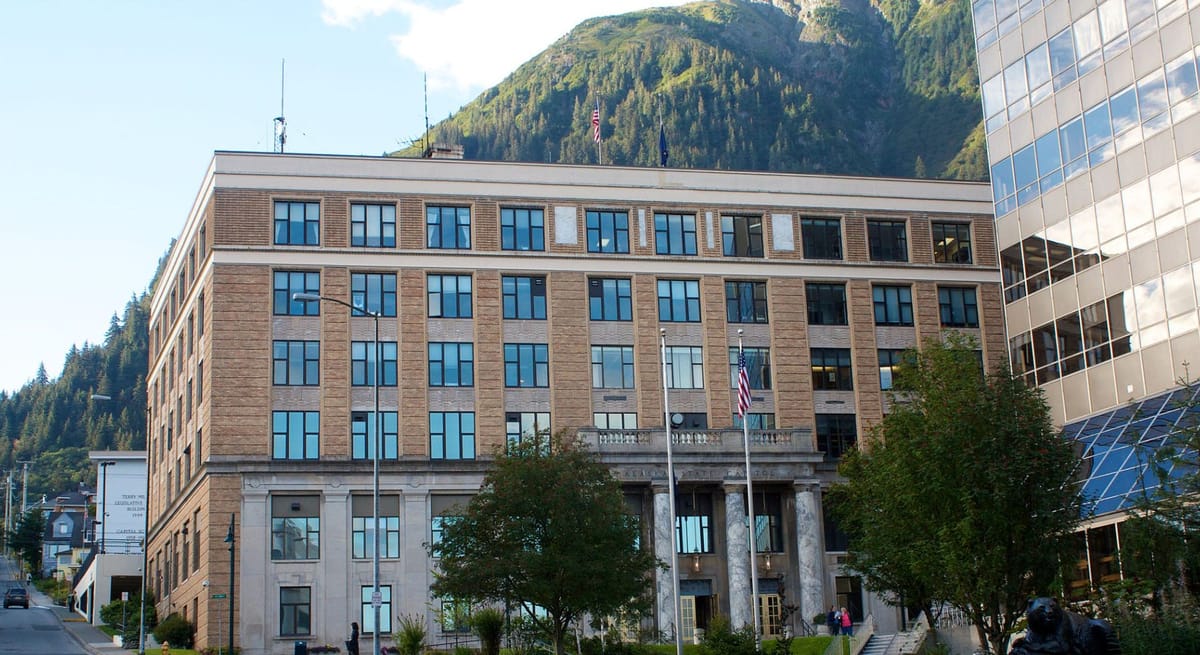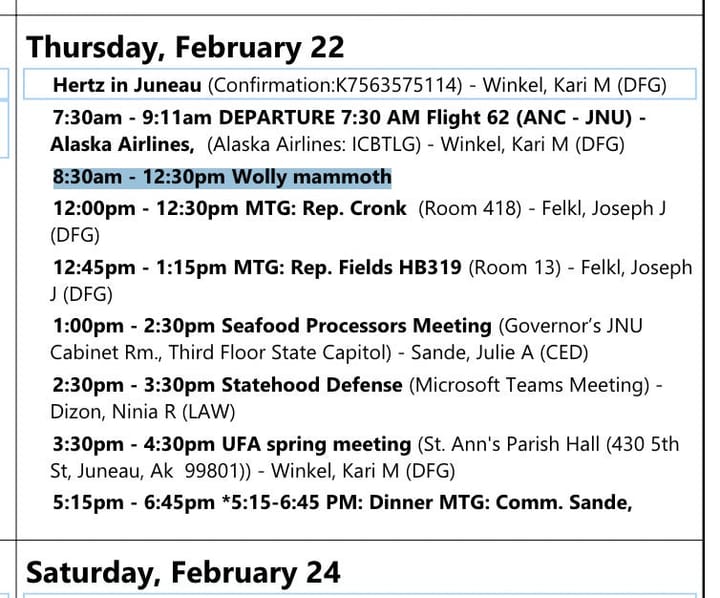Alaska lawmakers: Keep your pay raise. But it's time to fix per diem.
With Alaska legislators poised to accept a $34,000-a-year raise, there's no longer a justification for paying themselves $9,000 a month for living expenses in Juneau.

Northern Journal is a newsletter written by me, Anchorage journalist Nat Herz. It’s free to subscribe, and stories are also free to Alaska news outlets to republish through a partnership with the Alaska Beacon.
My goal is reaching the broadest possible audience of Alaskans. But if you can afford it, please consider supporting my work with a $100 annual or $10 monthly voluntary paid membership — these are currently my only sources of revenue for this project. Your support allows me to stay independent and untethered to the demands of the day-to-day news cycle. If you’ve already subscribed, thank you.
Eating at Juneau’s fanciest restaurant, Salt, is like sitting in a fishbowl. The place has huge windows that look directly out at Seward Street, which means that the many passersby — reporters, legislative aides, state workers — can stare directly in to see who’s eating parmesan truffle fries and $38 steaks.
In four years of covering the Legislature and living in Juneau, I might have eaten at Salt two or three times, and had a drink at the bar a few times more. But I was always a little shocked to walk past, peer in — I’m a reporter, I always looked — and see certain state legislators eating there regularly, often with lobbyists.
These lawmakers were supposed to be everymen and everywomen. Wasn’t this a bad look? And how could they afford it?
I’ve been thinking about these questions recently, as a public debate plays out over a proposed two-thirds boost to legislative salaries — to $84,000 a year from $50,400, for the job that falls somewhere between part- and full-time.
Despite my feelings about expensive dinners, I believe the raise is merited. But lawmakers also grant themselves another type of compensation that’s no longer defensible: payments of $307 a day, ostensibly intended to offset their lodging and eating expenses in Juneau.
For years, there’s been a grudging political consensus that the “per diem” package — $9,500 a month, or some $37,000 in total for most lawmakers last year — was justifiable, as a way to make up for salaries that hadn’t budged in more than a decade.
But now that those salaries are set to sharply increase, Alaska lawmakers’ per diem program needs reform. And given that the rate is set by a committee of legislative leaders, it’s a problem lawmakers have the power to easily fix.
Without an adjustment, legislators could receive as much as $120,000 next year between their salaries and expense payments, plus a state health care plan. That’s for doing a job that, while demanding at times, allows many lawmakers to also earn tens of thousands of dollars a year from outside work.
“People should know that the Legislature has the power to change per diem,” said Jonathan Kreiss-Tomkins, who closely watched legislative spending as a Sitka Democratic representative before leaving the job this year. Kreiss-Tomkins told me that while he thinks it makes sense for legislative salaries to rise, the overall compensation package becomes “more generous than is reasonable” without reduced per diem.
Before this year’s pay raise, Alaska legislators’ salaries had been stagnant since the $50,400 figure was approved in 2009. To have the same buying power today, after inflation, lawmakers would need to be paid some $72,000.
Even once you added in per diem, there were fair arguments that the Legislature’s overall compensation package — some $90,000 last year — was too low.
Lawmakers have to keep up a second residence for several months in Juneau, where food isn’t cheap and monthly rents can easily exceed $2,000 — particularly for legislators who relocate with their families.
During the yearly legislative session, which can last four months or more, there’s little time for outside jobs; lawmakers work pretty much around the clock. And while some legislators earn up to six-figure incomes outside the session working as attorneys, pilots, organizers and managers, others still spend ample time on legislative and constituent business.
“I do this job nine to five in the interim, and a whole lot more than that during the session,” Sen. Jesse Kiehl, a Juneau Democrat, told me.
Given those demands, legislative salaries need to be competitive if Alaskans want people other than retirees and the independently wealthy to serve as their elected officials. Rep. Calvin Schrage, an Anchorage independent, told me he had to quit his job as the executive director of a tutoring company in order to fulfill his legislative obligations.
“Just the very fact that my life is subject to special sessions that are out of my control make it impossible for me to hold down that kind of job,” he said. “It’s just not practical with the constraints on myself as a legislator.”
Boosting legislative salaries to $84,000 goes a long way toward solving this problem. Lawmakers also have access to very good state health care, which, for the standard plan, has a $167-a-month premium, a $300 deductible and a $1,750 yearly out-of-pocket limit — and adding family members only bumps up the premium to $300.
Take all that into account, and a $9,000-a-month living stipend stops making sense — and the legislators I’ve talked to about it have either agreed with me, or failed to present compelling arguments to the contrary.
Sure, legislators should be able to maintain a temporary home in Juneau, and to feed themselves, without losing money. A reasonable payment for living expenses also limits the use of delay tactics by the governor or wealthier lawmakers to extract concessions at the end of the legislative session from working class elected officials, who might otherwise feel financial pressure to leave town.
As it turns out, the executive branch has the perfect solution to this problem. For long-term travel assignments, it pays $33 a day for meals and up to $45 lodging — or a maximum of $2,730 a month. If legislators think that’s not enough for Juneau, where rental and hotel prices spike once tourist season gets going in the spring, they can set up a system where they’re reimbursed for their actual expenses.
Keeping the current system, where legislators collect $300 each day they’re in Juneau? That’s far from an incentive for them to finish their work quickly. And it all but ensures that you’ll see more elected officials eating with lobbyists at Salt.
Northern Journal is a reader-supported publication. To receive new posts and support my work, consider becoming a free or paid subscriber.



